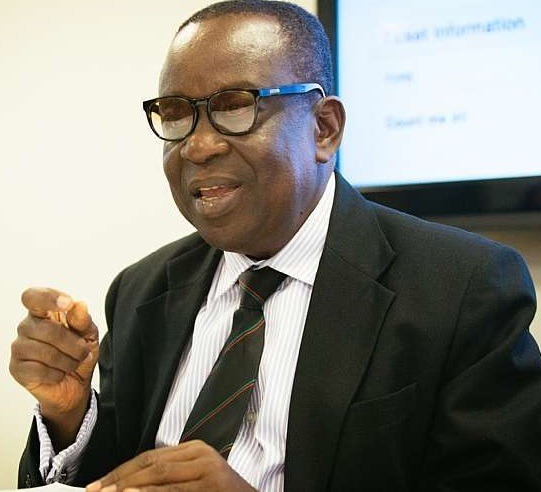Minister for National Security Mr. Albert Kan-Dapaah has observed that disinformation and fake news are becoming a major threat to Ghana’s peace and security.
According to him, the spread of false news through social media platforms are alarming in the country and this does not augur well for the nation’s security.
This, he bemoaned, has been a major concern for his Ministry due to its potential of eroding the democratic gains made by the country and disrupting the current peace and security.
Speaking at a seminar on “the Impact of Disinformation on Electoral Integrity, Peace, and Security in Africa,” in Accra on Friday, Mr. Kan-Dapaah highlighted the challenges associated with this worrying phenomenon, especially in the wake of recent events, such as the coup in Niger.
“Following the coup in Niger, certain individuals in the academia, civil society, and the media you must have observed have been propagating false narratives in support of a coup or military rule,” he added.
Emphasising on the gravity of the situation, Mr. Kan-Dapaah said, “And let me repeat that today from where I sit (as a National Security Minister), I can confidently say that this information is one of the major security challenges that I have to confront on a daily basis.”
The seminar, organised by the Ministry of Foreign Affairs and Regional Integration in collaboration with the Ministry of Information and the Institute of Democracy and Electoral Assistance (IDEA), was to among other things, highlight the threat that disinformation poses to the peace and stability of the country.
It was to also proffer solutions that would culminate in the development of a framework to help fight the menace.
The seminar was attended by members from key public and private institutions, including the judiciary, political parties, civil society organisations, as well as security and political analysts.
Mr Kan-Dapaah reiterated that, misinformation and disinformation, have become potent tools that are used to influence operations and malicious campaigns that undermined electoral integrity, peace and also security.
Those campaigns, he pointed out, are orchestrated by a spectrum of actors, including both state and non-state entities, local and foreign actors, as well as political and non-political players.
In West Africa, for instance, the National Security Minister indicated that, the overthrow of democratically elected governments and the emergence of military rule, were largely fueled by mis/disinformation.
“Even the most mature democracies are not immune, as witnessed in the unsettling events of January 6, 2021, when supporters of former President Trump stormed the capitol hill in the United States. That incident continues to underscore the alarming impact that disinformation can have on electoral processes and a nation’s stability,” he said.
Democracy in West Africa, according to Mr Kan-Dapaah, is under siege, stressing that “disinformation, we believe is the most potent weapon being employed by foreign and local actors to destabilise our nations.”
“Look at the recent space of coup in Burkina Faso, in Mali and Niger, and they provide a better contest for analysing the role of disinformation and misinformation in undermining democracy, peace and stability in West Africa,” Mr. Kan-Dapaah added.
He has therefore stressed the need for collaboration among all stakeholders, including civil society organisations and the media in the fight against the phenomenon.
On her part, Minister for Communications and Digitalisation, Mrs Ursula Owusu-Ekuful, said disinformation was a threat to the country’s democratic foundation, sowing doubts, amplifying divisions and eroding trust in the electoral systems.
“It can undermine not only the integrity of our elections, but damage our peace and security, polarise our societies, pitch one group against the other, knock our heads against each other and shred the very nature and foundation of our societies,” she emphasised.
She said it was important to recognise that malicious actors, individuals and nations explored the speed and reach of tools to disseminate false information, manipulate public opinions and influence public outcomes through social media manipulation.
Mrs. Owusu-Ekuful stressed the need for increased investment in public education and awareness creation campaigns that will promote media literacy and critical thinking.
“We need to be able to empower our citizens to be able to discern fact from fiction so, that we can mitigate the impact of disinformation,” she added.
The Communications and Digitalisation Minister also urged media practitioners to carry out their work diligently, being mindful of the impact of their words on society.
Minister for Foreign Affairs, Ms Shirley Ayorkor Botchwey, recognised the challenge posed by a liberal social media space.
She however cautioned against strict control of the space by the State.
“We must recognise that heavy-handed responses such as internet shutdowns or network throttling of social media represent a grave infringement on fundamental human rights,” she noted.




































